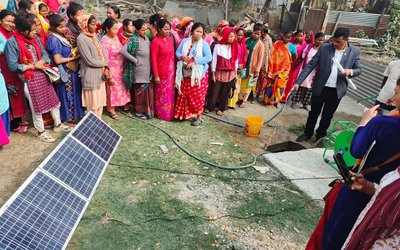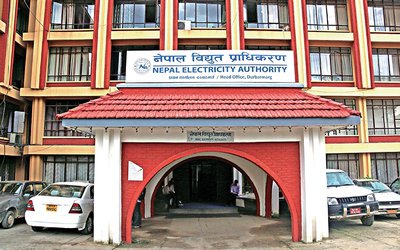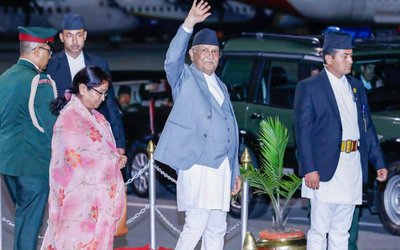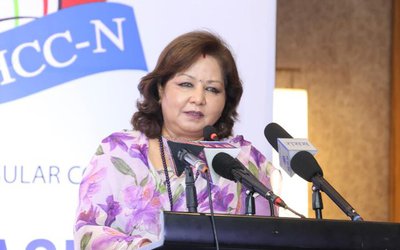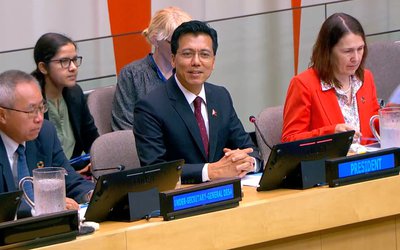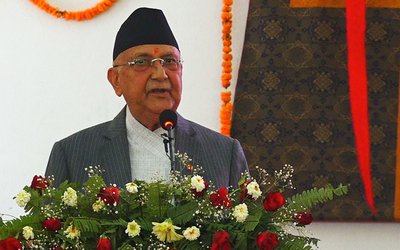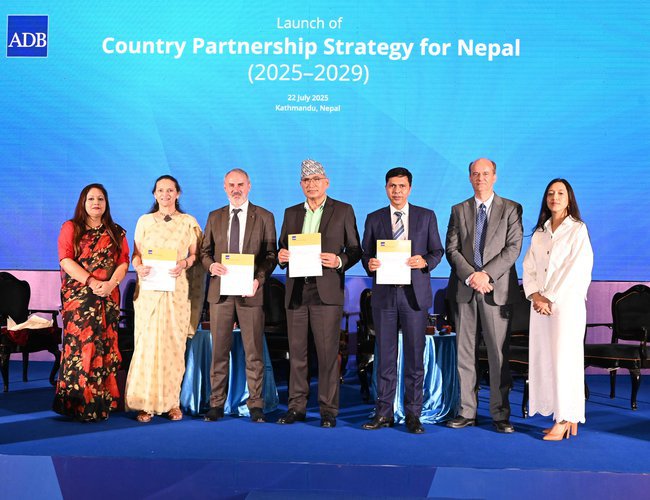
Asian Development Bank has launched a new five-year Country Partnership Strategy focusing on growth, jobs, and resilience.
Deputy Prime Minister and Minister of Finance Bishnu Prasad Paudel launched the Asian Development Bank’s (ADB) Country Partnership Strategy (CPS) for Nepal 2025–2029.
In his speech, the Deputy Prime Minister emphasized the importance of the new strategy in supporting Nepal's economic transformation, aligned with the country's 16th Plan. The strategy aims to promote inclusive growth, climate resilience, and job creation, particularly for the youth.
“The launch of ADB’s new Country Partnership Strategy marks a new chapter in our six-decade partnership. Aligned with Nepal’s 16th Plan, it supports inclusive growth, climate resilience, and quality job creation—especially for our youth. “We deeply appreciate ADB’s continued support in our journey toward economic transformation.”
“The CPS reflects ADB’s continued strong commitment in supporting Nepal’s development goals and sets a comprehensive agenda for inclusive, resilient, green, and employment-intensive economic growth,” said Arnaud Cauchois, Country Director, ADB’s Nepal Residential Mission.

“We appreciate the leadership of the Ministry of Finance and the deep collaboration with the World Bank Group. ADB remains committed to working with all stakeholders to implement the CPS effectively through a combination of investment projects, policy-based lending, and sector development programs that integrate policy reforms, institutional strengthening, and infrastructure investments.”
The CPS incorporates cross-cutting priorities such as digital transformation, good governance and capacity building for federalism, and the empowerment of women and disadvantaged and vulnerable groups—ensuring inclusive and equitable development outcomes.
The ADB's commitment to supporting Nepal's development goals and fostering inclusive, resilient, green, and employment-intensive economic growth was highlighted.
The CPS also includes priorities such as digital transformation, good governance, capacity building for federalism, and the empowerment of women and disadvantaged groups to ensure equitable development outcomes.
ADB Principal Economist Jan Hansen and Programs Officer Shreejana Rajbhandari presented the key strategic priorities and flagship projects of the Country Partnership Strategy (CPS). The strategy was developed through extensive joint consultations with stakeholders across all seven provinces and federal agencies, as highlighted in a video.
Approved by the ADB Board of Directors on 17 June, the CPS outlines ADB’s strategic direction for Nepal over the next five years, focusing on promoting private sector-led growth, boosting youth employment, and enhancing environmental sustainability, climate resilience, and disaster resilience.
Moderated by Binita Shah Khadka, Communications Specialist at Asian Development Bank, the program ended with a panel discussion and interactive Q&A session. The session included Finance Ministry Joint Secretary Dhani Ram Sharma, ADB Country Director for Nepal Arnaud Cauchois, and World Bank Operations Manager Preeti Arora.
Finance Secretary Ghanshyam Upadhyaya expressed gratitude to ADB for their support in Nepal's economic development.
This marks the first time in Nepal that the CPS was developed jointly with the World Bank Group Country Partnership Framework, a significant milestone in collaborative development planning.
The launch event brought together representatives from the Government of Nepal, development partners, private sector, civil society, academia, and the media.
- HCC-N: Economic Ambassador
- Aug 03, 2025
- MONETARY POLICY: Disappointing Outcome
- Jul 17, 2025
- MELAMCHI WATER SUPPLY: No Interruption During Monsoon
- Jun 25, 2025
- KOREAN RETURNEES: Successful Integration
- Jun 25, 2025
- UPPER TRISHULI-1: Engaging With Local
- Jun 25, 2025


